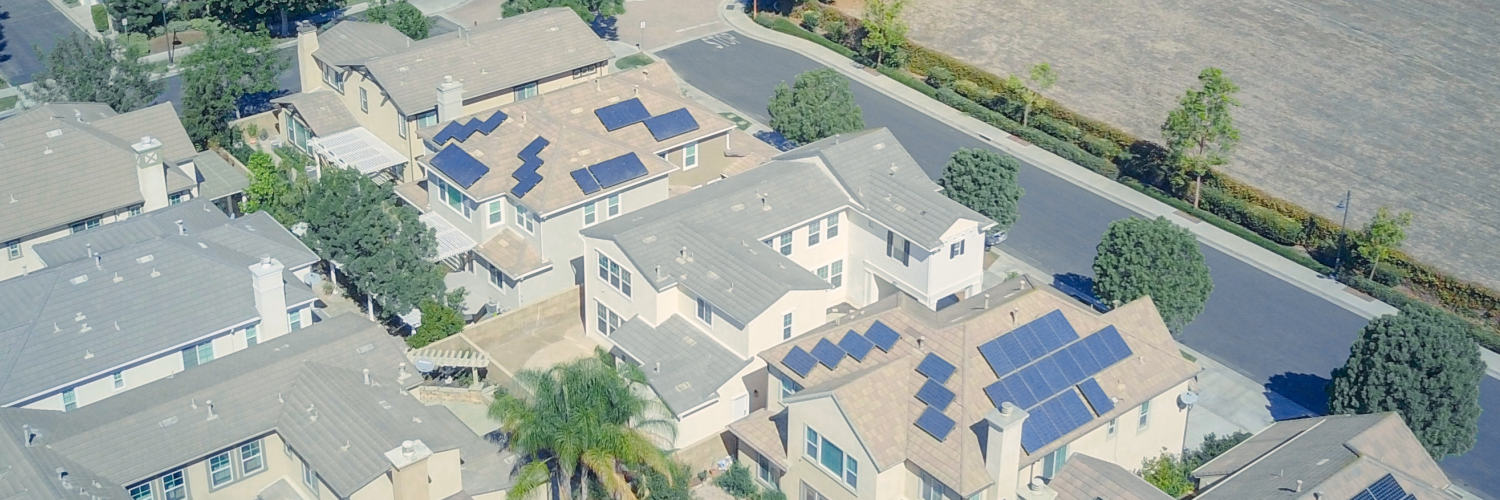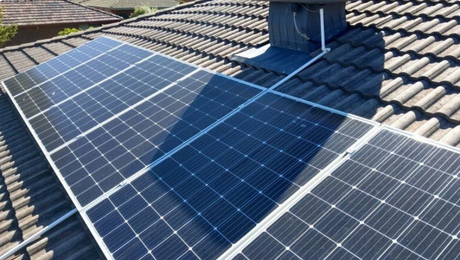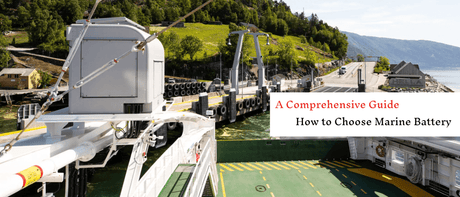Exploring the Advent of Solar Panels in Ontario
Nowadays, solar panels are becoming more popular as homeowners become aware of the many advantages they provide, driven by their cost-effectiveness, government rebates and subsidies. Over the last few years, major advancements in technology have made solar power a substantially more effective and environmentally friendly source of renewable energy.
Hence, the ever-increasing number of homeowners are attempting to get as much information as possible on the technology in question as solar power continues its steady march toward becoming a mainstream power source. Since Ontario is a leading region that advocates for the proliferation of solar panels, it is important to uncover the installation benefits and the costs of solar panels in Ontario.
Table of contents:
- Costs of Solar Panels in Ontario
- How Many Solar Panels Do You Need to Run a House In Ontario?
- Benefits of Solar Panel Installation in Ontario
- How Long Does It Take for Solar Panels to Pay for Themselves in Ontario?
- Solar Panel Ontario Government Programs 2022
- Where To Buy Solar Panels in Ontario
Costs of Solar Panels in Ontario
Overall, the expenses of having solar panels will likely vary significantly from one city and area to another, depending on where you live. In addition, the cost of installing residential solar panels in Ontario can vary significantly depending on several factors, including the brand of solar panels and inverters that you buy, the installation company that you hire to do the work, how easy or difficult it is to install solar panels on your home, and, of course, the number of solar panels that you require.

As of October 2022, the typical cost of a solar panel in Ontario is $2.75/W on average, according to Energy Sage. Overall, an average solar installation in Ontario may cost anywhere from $11,688 to $15,812 dollars. This range of expenditures is based on the size of the solar panel system, which is 5 kilowatts (kW). When you integrate the federal investment tax credit (ITC) of 30 % and additional state and municipal solar incentives, the net price you will pay for solar energy may drop by thousands of dollars.
Nevertheless, the Ontario Energy Board estimates that an average Ontario home uses around 9,500 kWh of power over a year. In reality, Canada homes with gas heating can use a total amount of power between 7,500kWh and 15,000Kwh. Subsequently, for Ontario household that wants to offset 100% of its power consumption, a solar array will cost anywhere between $17,550 and $38,850 to build, given the current average cost of solar power in Ontario, which ranges between $2.34 and $2.59 per watt.
How Many Solar Panels Do You Need to Run a House In Ontario?
Given that we have already highlighted that a Canadian family's annual energy consumption is around 9,500 kWh, we can determine the size of the system needed to counteract 100% of energy usage. A 200 Watt monocrystalline solar panel from Renogy can produce 1000 Watt-hours of electricity per day in optimal sunlight, and then we can draw a conclusion that 26 panels, are needed to meet the demand of 9,500 kWh for the year. But if you settle down with a 400 Watt monocrystalline solar panel, you will need 13 panels, aka a 5.2kW solar power system.
Even though these are the statistics for a typical family home, the size of the solar power system that a home needs might range anywhere from 5 to 10 kW. The best way to customize your own solar system is to review your utility bills once a month to get an idea of how much energy you regularly use in a year. Then utilize a solar powered calculator to help you decide the size of the solar power system you will require.
Also, more details can be found in What Is the Average Solar Panel's ROI in Canada?
Benefits of Solar Panel Installation in Ontario
In Ontario, putting solar panels on your property may have several positive effects, including a decrease in carbon emissions, increased self-sufficiency, cost savings on monthly electricity bills, and a rise in the value of your property.

Increase Property Value - Choosing to power your house with solar energy from the beginning boosts your property's total value. Two different types of value may be added to your property by installing a solar power system. These values are investment value and consumption value. Investment value refers to the real monetary worth that is added to your property over time, which results in an increase in the home's total selling price. You may anticipate an increase in the value of your property of $3,500 for every $1,000 you put into your solar panel installation. Consumption value refers to the positive effects on the environment that might result from installing and using an energy source that is less harmful to the planet.
Reduce Your Bills - Solar power will reduce your energy bill to a set rate for the installation's lifetime, as opposed to the unpredictable increase in grid electricity prices. In addition, under Ontario's Net-Metering scheme, if you create more energy than your house consumes, you will earn a credit from your local utility provider for every excess kWh generated.
Reliability & Independence - Solar energy offers a dependable alternative energy source that decreases our carbon footprint and reliance on the power grid. Hence, you do not need to acquire your energy from a third party, and you will be able to benefit from an almost unlimited supply of energy derived from an environmentally friendly source.
How Long Does It Take for Solar Panels to Pay for Themselves in Ontario?
After considering all the expenditures, the typical payback time for an average-sized home solar system in Ontario is between 8 and 10 years, also taking into account any unforeseen future maintenance costs. This is an excellent time frame taking into consideration that the efficiency of most solar panels lasts for at least 25 to 30 years.
The timeframe that will take you to entirely pay for your solar power system by using the money you save on your energy bill each month is referred to as the "solar panel payback period." The overall cost of installing the system is included in the calculation, after which solar incentives and/or rebates, as well as the amount saved on the homeowner's monthly power bill, are subtracted. Ultimately, solar panel installation in Ontario represents a financially advantageous pursuit.
Solar Panel Ontario Government Programs 2022
Overall, the strategy that the federal government has devised titled "A Healthy Environment and a Healthy Economy" is undoubtedly one of the most compelling arguments in favour of solar energy's financial viability in Ontario. This approach encourages people to prepare for the future and invest in energy-efficient modifications for their houses, with the objective of stimulating economic growth.

With renewable energy producers of up to 500 kilowatts or less, Ontario electricity users may use the Net-metering Scheme. Net Metering enables Ontarians to transfer surplus power to the distribution grid for a credit against their energy expenditures. After you are linked to the distribution system, your local distribution firm will continue to monitor your metre and deduct the value of the power you send to the grid from the value of the electricity you use from the grid. The "net" difference between these two numbers is what will appear on your bill and credits expire after one year and are reset to zero if any remain. You can learn how does it work in Net Metering for Home Solar in Canada.
Through the Greener Homes Grant, you might get up to $5,600 in funding. For this, you must carry out a House Energy Audit and include the installation of solar panels to the list of modifications you want to make your home more energy efficient. There is a limited supply of funds, and they will be allocated on a first-come, first-served basis!
The governments of Saskatchewan, Manitoba, Ontario, and New Brunswick (who have not committed to their own carbon pollution pricing regimes) provide a refund to small and medium-sized businesses that invest in green technology, such as solar photovoltaics. This is known as the Climate Action Incentive Fund, and it pays reimbursements of up to 25 % of project costs, ranging between $20,000 and $250,000. Eligible energy efficiency enhancements include photovoltaic, hydroelectric, and wind power generation.
There are not many choices for Ontario homeowners, but some of them may also try to seek chances in home energy efficiency incentives.
Where To Buy Solar Panels in Ontario
Renogy is an industry leader in solar and sustainable energy to accelerate the global adoption of clean energy technologies substantially. For those who want to find a viable solution to install solar panels in Ontario, Renogy's all-in-one solutions are simple to choose, install, and run, and the company's solar panels, accessories, portable devices, and lifepo4 batteries offer the most energy at the lowest price on the market today.
Moving forward, Renogy's purpose is to assist 50 million people in attaining energy independence by 2030, releasing them from the weight of damaging emissions, growing energy costs, and disruptive power interruptions.
Renogy introduces an extensive range of solar energy-related products, with over 20 types of solar panels from which you can. Check out our website and let us bring the sun you’re your lives, literally!
Related articles:
Are Solar Panels For Home Worth It In Canada?
How Do Solar Panels Work: Things You Should Know
How To Make A Solar Panel In Canada And Abroad?
What Are the Necessary Components of a Solar Power System?
How to Hire the Right Solar Installation Contractors in Canada









